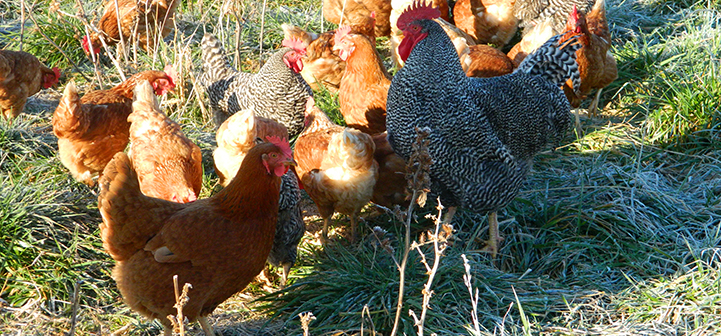Written by: Dr. Jacquie Jacob, University of Kentucky
Hemorrhagic enteritis is an acute digestive disorder affecting young turkeys. Marble spleen disease is an acute respiratory disease of pheasants. Both diseases are caused by similar viruses. Infection typically occurs when birds ingest the virus, which is often introduced to a flock through contaminated clothing or equipment.
CLINICAL SIGNS
Turkey poults and pheasants less than four weeks of age are typically resistant to infection due to the presence of maternal antibodies.
Hemorrhagic enteritis in turkeys
Hemorrhagic enteritis typically affects turkeys 6 to 12 weeks of age. Turkeys that have contracted this virus exhibit depression and have bloody droppings. Infection leads to death.
Marble spleen disease in pheasants
Marble spleen disease typically affects pheasants three to eight months of age. Pheasants that have contracted this virus exhibit depression, enlarged mottled spleens, and lung congestion. Infection leads to death.
TREATMENT
There are no treatments for this disease.
PREVENTION AND TREATMENT
To prevent the spread of this disease, it is important to maintain effective sanitation and biosecurity. A commercial vaccine is available.
FOR MORE INFORMATION
Overview of hemorrhagic enteritis/Marble spleen disease in poultry. Merck Veterinary Manual.

